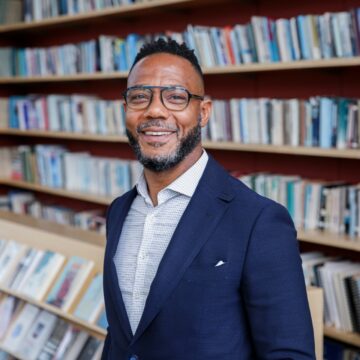John M. Eason (he/him) is the Watson Family University Associate Professor of Sociology and International and Public Affairs at Brown University. He also works as a Senior Fellow at the Justice Policy Center/Office of Race and Equity Research at the Urban Institute.
He holds a Ph.D. in sociology from the University of Chicago. Eason, a native of Evanston, Illinois, received a bachelor’s degree in Urban and Regional Planning from the University of Illinois Urbana-Champaign and a M.P.P. from the Harris School of Public Policy at the University of Chicago.
Before entering graduate school, Eason was a church-based community organizer focused on housing and criminal justice issues. He also served as a political organizer for then-Illinois State Senator Barack Obama.
Eason’s research interests challenge existing models and develop new theories of community, health, race, punishment and rural/urban processes in several ways. First, by tracing the emergence of the rural ghetto, he establishes a new conceptual model of rural neighborhoods. Next, by demonstrating the function of the ghetto in rural communities, he extends concentrated disadvantage from urban to rural community process. These relationships are explored through his book, Big House on the Prairie: Rise of the Rural Ghetto and Prison Proliferation (University of Chicago Press, 2017).
While at the ABF, Eason will work on crafting a new narrative on prison abolition while writing articles, chapters, and public pieces to complete a book tentatively titled Bringing Down the Big House: From the Invisible Land to the Upcycled Place. In addition to managing quantitative analysis on the impact of prison closures by Undergraduate Research Scholars through the Justice Policy Lab at Brown University, he will be conducting field work across two rural communities in California that are losing or have lost their prison. These two data sources will be complemented by delving into archives throughout Chicago to map his family’s history onto shifts across the criminal legal system.

